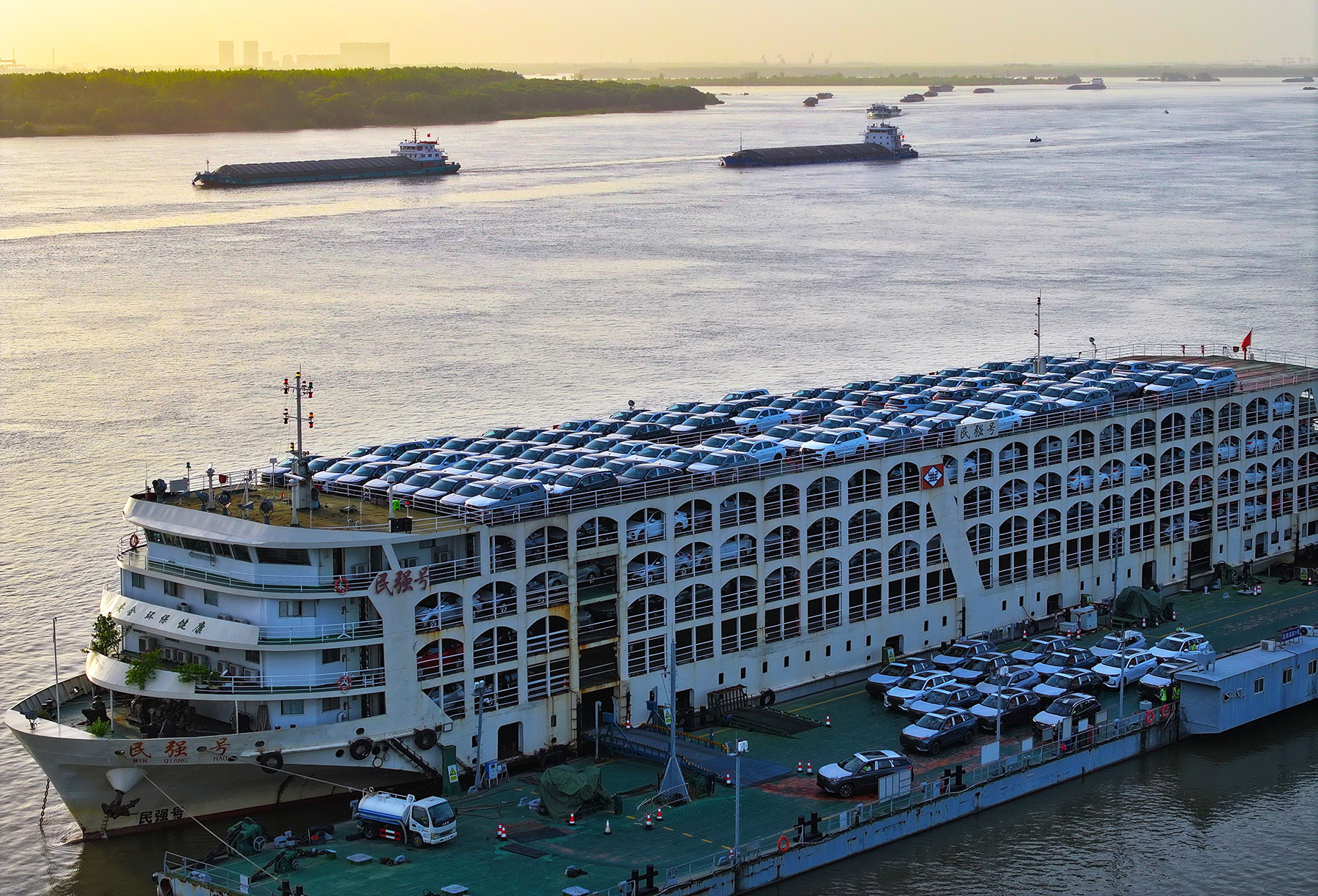
Washington's decision to hike tariffs on Chinese electric vehicles and automotive batteries is politically motivated and does not align with World Trade Organization rules or the realities of the US market, an industry expert in China's automotive battery sector said.
"It is stupid, stupid and stupid for the US government to exert tariff spikes on Chinese EVs and batteries. Such tariffs are ineffective and counterproductive to the US EV industry's development," Dong Yang, president of the China Automotive Battery Innovation Alliance, told China Daily in an exclusive interview.
READ MORE: Tariffs on electric cars and batteries criticized
Dong's comments came after the US Trade Representative's office said some of the steep tariff increases on an array of Chinese imports will take effect on Aug 1, including quadrupling import duties on Chinese electric vehicles to over 100 percent and an increase in the tariff rate on lithium-ion batteries used in EVs from 7.5 percent to 25 percent.
According to Dong, China's EV exports to the US are minimal now, so a 100 percent tariff is more of a political gesture, but "the nature of this move is alarmingly damaging, and it is a complete deviation from the market economy which the US has always claimed to be a staunch supporter of".
"The US electric vehicle industry's primary challenge is its lack of a robust domestic battery industry, which contributes to higher costs and insufficient charging infrastructure," Dong, who is also vice-president of China EV 100, a key auto industry think tank in the country, added.
According to him, US companies were pioneers in some automotive battery technologies, but they subsequently fell behind their Chinese counterparts due to missteps and strategic errors.
"Now, as the US seeks to establish its own battery industry, it faces higher costs compared to leveraging Chinese expertise and production capabilities. China's battery industry is highly advanced and cost-efficient to lead globally," Dong said.
The United States has been the largest destination for China's lithium-ion battery exports for four consecutive years, from 2020 to 2023.
In 2023, the value of lithium-ion batteries exported from China to the US reached $13.54 billion, accounting for 20.8 percent of the total export value of China's lithium-ion batteries, data from the General Administration of Customs of China showed.
"For China's automotive battery industry, participating in the US market is an added benefit rather than a necessity. The Chinese battery industry will continue to thrive regardless of US policies. However, for the US, excluding Chinese batteries will lead to significantly higher costs, impacting the overall competitiveness of its EV market. This situation is a clear example of political decisions undermining economic logic," Dong added.
"Now, the US government wants to rely on Japanese and South Korean suppliers to build its domestic EV battery industry. Such attempts are undoubtedly misguided and will add to costs, because Japan and South Korea have less efficient battery supply chains than China's," Dong said.
Ding Yuqian, head of China Autos Research at HSBC Qianhai Securities Ltd, said the nation has the world's most competitive EV battery supply chain.
Noting that the most expensive single element of an EV is its battery, she said that carmakers partnering with China have access to high-quality batteries produced relatively cheaply, with manufacturers continuously improving the technology, Ding said.
ALSO READ: Chinese EVs' capabilities lauded in social media world
Elon Musk, CEO of US EV maker Tesla, said he opposed US tariffs on Chinese electric vehicles, and neither Tesla nor he had sought such tariffs.
He was responding to audience questions via video link during an annual technology conference dedicated to innovation and startups in Paris last week.
Despite the US government's antagonistic stance, Chinese EV battery companies like CATL and BYD remain open to collaboration. They are willing to engage in mutually beneficial partnerships. "This contrasts with Washington's approach, which politicizes economic and social issues to an extreme degree. This politicization harms both economies and slows technological progress," Dong said.
"The US automotive industry has historically benefited from collaboration with China. For the global automotive sector to thrive, increased cooperation, rather than political decoupling, is essential," Dong added.


